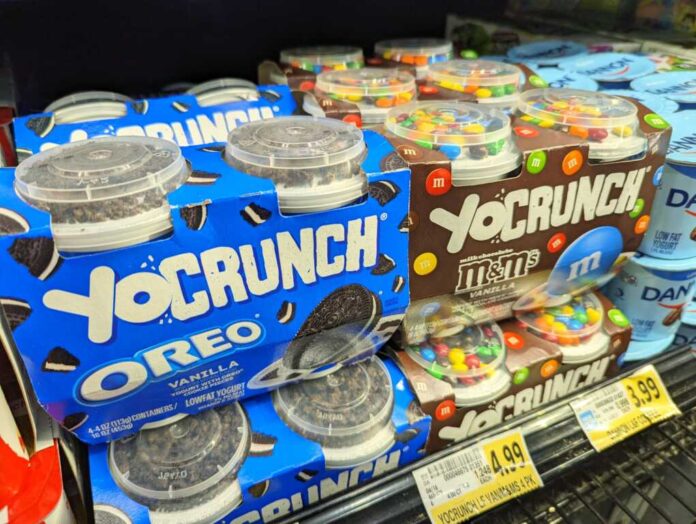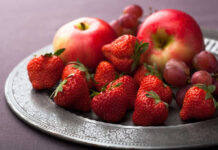
If you thought yogurt was a safe bet for snack time, wait until you hear how a batch of YoCrunch yogurts turned the dairy aisle into a real-life episode of “Snacks: Danger Edition”—plastic shards included, collectibles not so much.
At a Glance
- YoCrunch yogurt was recalled nationwide after reports of sharp plastic pieces in its signature dome toppers.
- The recall sweeps all flavors and sizes currently on shelves—no dome left behind.
- No injuries reported, but the risk of choking or injury is considered significant, especially for kids.
- Danone U.S. and the FDA are collaborating to remove products and reassure anxious snackers.
A Yogurt Recall With a Crunch Too Far
Picture this: you’re reaching into your fridge, ready to jazz up your afternoon with a YoCrunch—yogurt topped with M&Ms or Oreos, the snack that practically begs you to play with your food. Suddenly, headlines hit: “Plastic pieces found in YoCrunch dome toppers.” That’s not the kind of crunch anyone ordered. Consumers across the U.S. reported finding transparent, sharp-edged plastic bits, some nearly an inch long. These weren’t hidden prizes—they were accidental, and they sparked panic for parents and snackers alike.
Popular yogurt recalled; could contain sharp plastic pieces
Danone U.S., the company behind YoCrunch, didn’t mess around. On July 11, 2025, they initiated a voluntary recall of every YoCrunch product in stores—M&Ms, Oreos, granola, you name it. The recall’s reach is as broad as a Walmart snack aisle, stretching to every retailer nationwide. The U.S. Food and Drug Administration (FDA) quickly joined the operation, issuing alerts and compiling exhaustive lists of affected UPCs and expiration dates. In a world where food recalls are as common as reality TV spinoffs, this one hit home for families who thought their biggest yogurt-related risk was spilled toppings, not impromptu dental work.
YoCrunch yogurts recalled for possible plastic pieces in toppers https://t.co/Ly4hd01UG7 pic.twitter.com/LaLltYsbEh
— New York Post (@nypost) July 15, 2025
How Yogurt Turned Into a Safety Saga
YoCrunch’s unique packaging—a dome filled with candy or granola atop a cup of yogurt—has delighted American families for years. But that fun design became a liability when plastic fragments started appearing inside those very domes. Reports surfaced in early July, prompting swift action from Danone and the FDA. The culprit: small, sharp pieces of plastic, ranging from 7 to 25 millimeters, hiding among the toppings. For a product marketed to kids, the risk of choking or mouth injury was no joke.
Retailers from Walmart to regional grocers began yanking YoCrunch off shelves at record speed. Danone U.S. issued a statement emphasizing their voluntary recall and underscoring their “commitment to consumer safety.” The FDA, meanwhile, urged consumers to check their fridges and dispose of or return any YoCrunch product. As of July 15, no serious injuries had been reported—just a collective sigh of relief and a run on safer snacks.
What the Recall Means for Snackers and the Snack Industry
For consumers, the recall means one thing: check your fridge, toss or return affected products, and maybe think twice about mix-in toppers for a while. For retailers, it’s a logistical headache—removing products, handling refunds, and fielding questions from customers who no longer trust their yogurt. Danone U.S. faces reputation damage, financial losses, and the challenge of regaining consumer trust in a market that’s always hungry for the next snack trend.
This saga also throws a spotlight on packaging safety—a recurring theme in food recalls. With kids as the main target for YoCrunch’s fun factor, the stakes couldn’t be higher. Industry experts predict increased scrutiny and possibly stricter regulations for snack products with separate toppers or complex packaging. If nothing else, this incident reminds the food industry that even the most playful packaging needs rigorous oversight, or snack time could turn into storytime for all the wrong reasons.
Balancing Brand, Safety, and the Next Snack Attack
Danone U.S. and the FDA’s swift, public response shows how seriously food safety is taken in today’s market. Their coordinated efforts are textbook recall management: transparent communication, comprehensive product removal, and a promise to do better. For now, snackers can rest easy—if a bit disappointed—knowing that the yogurt aisle is a little less adventurous but far safer.
The YoCrunch recall may fade from headlines, but its lessons will stick: fun packaging comes with real responsibility, and families will always be the most important “stakeholders” in the snack business. If you find yourself missing that familiar crunch, remember: it’s better to have a boring snack than a risky one. And the next time you peel back a yogurt lid, maybe peek inside before you dig in.


















